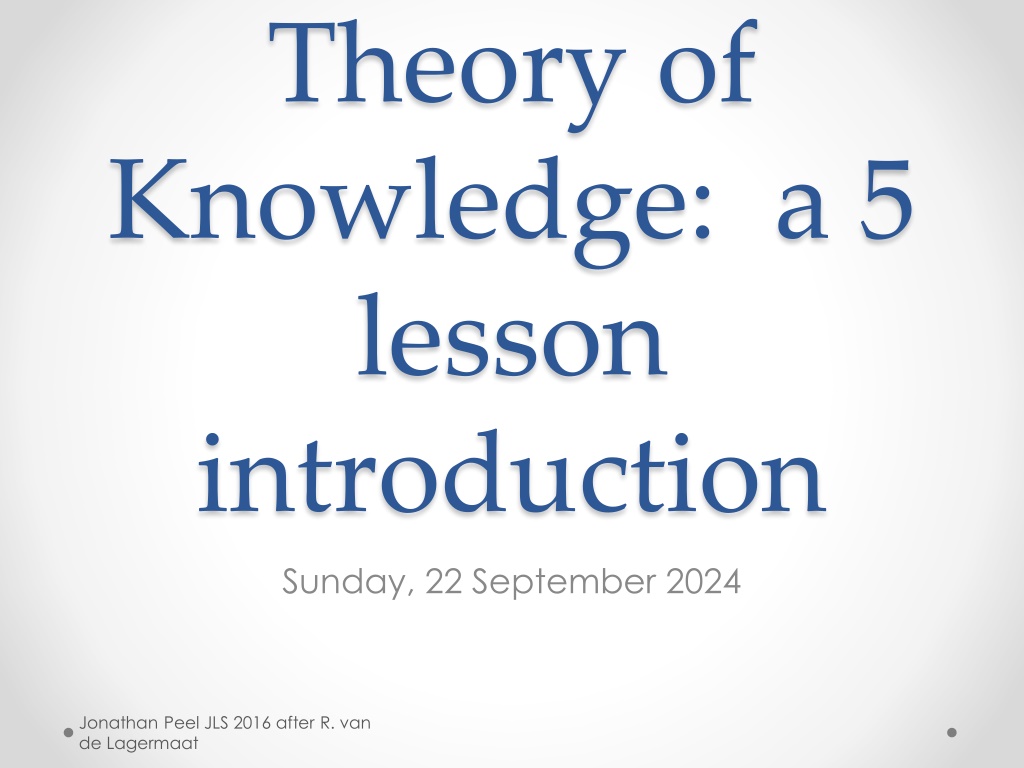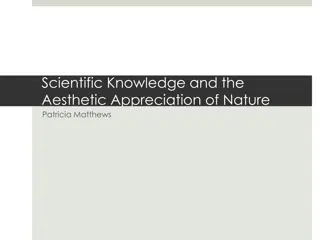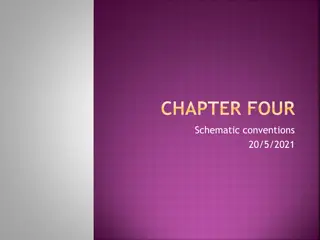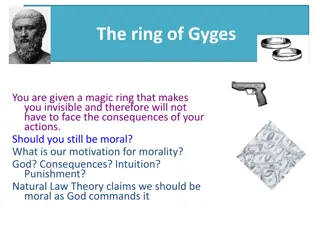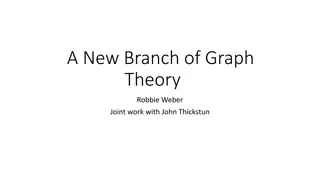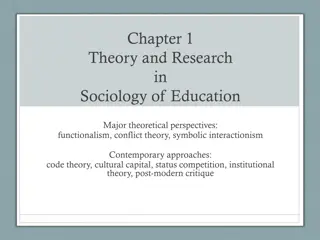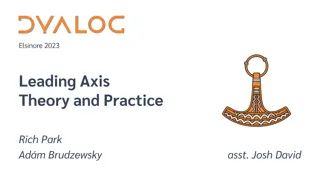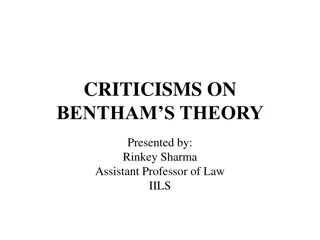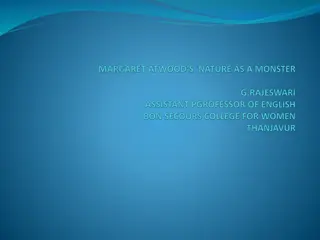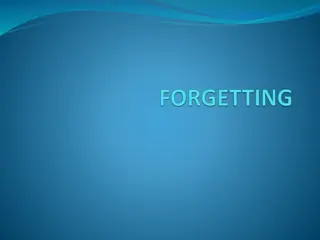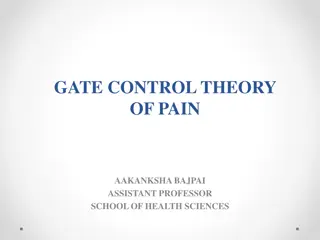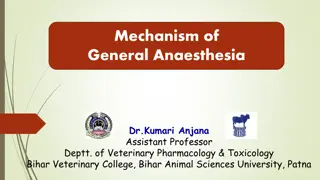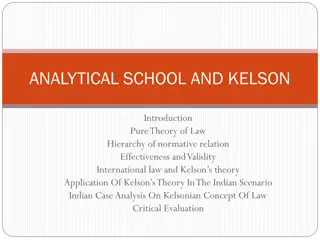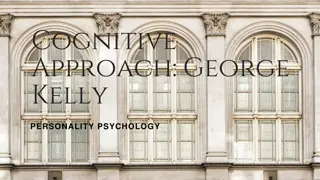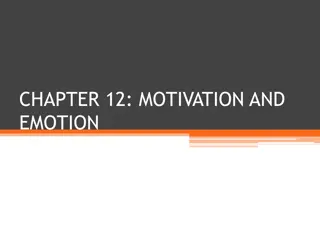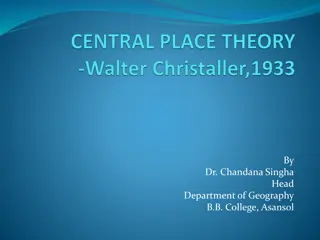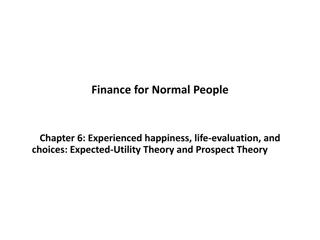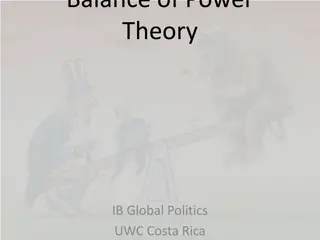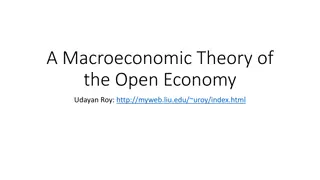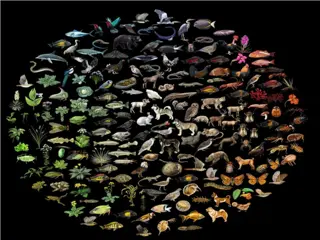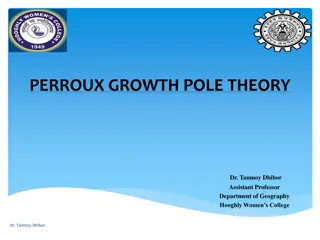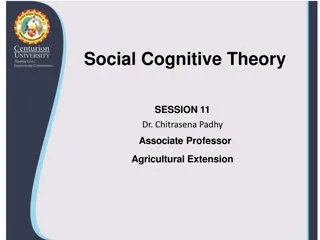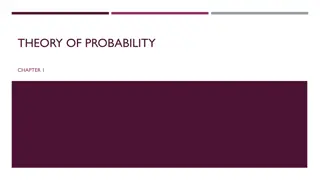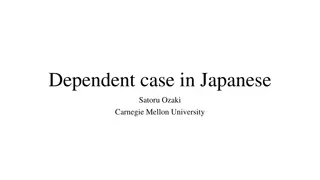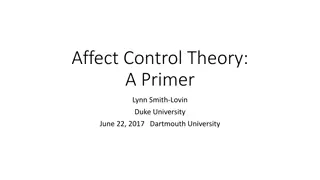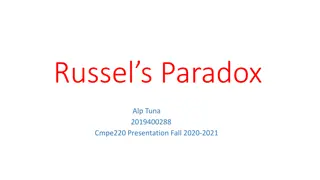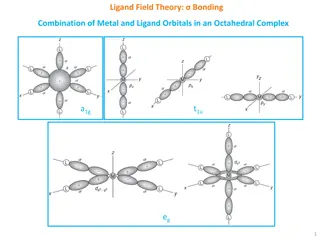Exploring the Nature of Knowledge in Theory of Knowledge
Delve into the essence of knowledge with Jonathan Peel's introduction to Theory of Knowledge, pondering on how different disciplines perceive knowledge, the impact of empirical questioning, and timeless wisdom on ignorance and progress. Explore the concept of basic knowledge and its implications, inviting contemplation on understanding the world and the uncertainties that challenge our perceptions.
Download Presentation

Please find below an Image/Link to download the presentation.
The content on the website is provided AS IS for your information and personal use only. It may not be sold, licensed, or shared on other websites without obtaining consent from the author. Download presentation by click this link. If you encounter any issues during the download, it is possible that the publisher has removed the file from their server.
E N D
Presentation Transcript
Theory of Knowledge: a 5 lesson introduction Sunday, 22 September 2024 Jonathan Peel JLS 2016 after R. van de Lagermaat
How do we know? Jonathan Peel JLS 2016 after R. van de Lagermaat
The core The subject has been developed as the central core of the International Baccalaureate Diploma. It is the glue which holds all knowledge together. Jonathan Peel JLS 2016 after R. van de Lagermaat
Consider this question Mathematicians and Historians both claim to know certain things. Does the word know mean the same thing to both disciplines? Discuss this with your neighbour. What is the implication of your discussion? Is there a point in empirical questioning when we can say enough ? Jonathan Peel JLS 2016 after R. van de Lagermaat
What others have said To know one s ignorance is the best part of Knowledge Lao Tse c.565 BCE All men have opinions, but few think George Berkley 1685-1753 By doubting we are led to enquire, and by enquiry we perceive the truth Pierre Abelard 1079-1142 The greatest obstacle to progress is not the absence of knowledge, but the illusion of knowledge Daniel Boorstin 1914-2004 Jonathan Peel JLS 2016 after R. van de Lagermaat
Knowledge: to understand the world Common sense is often seen as enough to get by with . We all know what the world looks like We all can respond to issues on the news with this idea at the back of our minds. We call this basic knowledge . Jonathan Peel JLS 2016 after R. van de Lagermaat
So, if we have this basic knowledge List the 10 largest countries by area. Try to get them in order. Pop the list away for now Jonathan Peel JLS 2016 after R. van de Lagermaat
Another version of the same thing Why is this unsettling: the Hobo-Dyer projection Jonathan Peel JLS 2016 after R. van de Lagermaat
The Maps The first, the MERCATOR projection is familiar. It is the world we know Centered on Europe and the Atlantic and emphasises the size of Europe as a result. Places the Northern Hemisphere a the top. Why? Distorts the size of various countries. (more later) Jonathan Peel JLS 2016 after R. van de Lagermaat
Hobo-Dyer projection Centres on the Pacific Ocean More accurate representation of land masses in terms of size, if not shape Is this how you PERCEIVE the world? Maybe not, but it is more accurate Jonathan Peel JLS 2016 after R. van de Lagermaat
Back to the Top 10. Jonathan Peel JLS 2016 after R. van How Mercator alters size of land masses de Lagermaat
bottom of the mercator projection. It s huge, right? Jonathan Peel JLS 2016 after R. van de Lagermaat
London lies a the same latitude as New York That explains the weather Jonathan Peel JLS 2016 after R. van de Lagermaat
Was Greenland in your top 10? Jonathan Peel JLS 2016 after R. van de Lagermaat
OK TOP 10: read them out Jonathan Peel JLS 2016 after R. van de Lagermaat
We thought we knew We did know. We had an idea based on a common perception That perception was based on seeing the Mercator projection on every wall of every Geography classroom since Year 1 It was reinforced by LANGUAGE: THE map of the world, rarely if ever, A map Jonathan Peel JLS 2016 after R. van de Lagermaat
A paradox If a map is to be useful, it must be imperfect. Why? The only perfect map would need to be on 1:1 scale and would be utterly impractical and immediately out of date Jonathan Peel JLS 2016 after R. van de Lagermaat
Lesson 2 Or is it? How do you know? How do you know that there was not a lesson yesterday? I might have deliberately not invited you The others might have asked me to exclude you and sworn silence Jonathan Peel JLS 2016 after R. van de Lagermaat
Belief are you certain? General idea: Certainty is what separates true knowledge from belief. How certain are we of anything? Jonathan Peel JLS 2016 after R. van de Lagermaat
TASK Individually and in silence, write down 5 things in life of which you are certain. Compare your list with that of another student Discuss. Can you reach agreement on nay of them? Jonathan Peel JLS 2016 after R. van de Lagermaat
Ways of Knowing Consider 4 facts 1. Neil Armstrong landed on the moon in 1969 2. Strawberries are red 3. If a is bigger than b and b is bigger than c, then a is bigger than c. 4. Murder is wrong Jonathan Peel JLS 2016 after R. van de Lagermaat
How do we know? We have read many accounts of the moon landings, seen video clips and dismissed conspiracy theories as the work of long-haired-freaky-people. We can see strawberries A is bigger than C because it can be logically worked out. This is intuitively evident Jonathan Peel JLS 2016 after R. van de Lagermaat
The ways of knowing Language: most of your education hitherto has been by this method. How reliable do you think it is? Perception: Do all people see in the same way? We call some colour-blind. What if the minority are actually seeing the reality? Reason: many fail to recognise falacious reasoning http://writingcenter.unc.edu/handouts/fallacies/ Emotion: We can rely on Gut reaction and think it is intuition Jonathan Peel JLS 2016 after R. van de Lagermaat
Some games with perception Jonathan Peel JLS 2016 after R. van de Lagermaat
Jonathan Peel JLS 2016 after R. van de Lagermaat
Moving? Which way? Jonathan Peel JLS 2016 after R. van de Lagermaat
Jonathan Peel JLS 2016 after R. van de Lagermaat
Lesson 3 Back to basics The caveman needs to communicate BUT first Jonathan Peel JLS 2016 after R. van de Lagermaat
WORDS List 10 words completely new ot the English Language since I was in the lower 6th in 1979/80. What does this tell us about all language? Jonathan Peel JLS 2016 after R. van de Lagermaat
Meaning of Words The Montillation of Traxillene: It is very important that you learn about traxillene. Traxillene is a new form of zionter.It is montilled in Ceristonna. The Ceristonnians gristeriate large amounts of fevon and then bracter it into quasel traxillene. Trxillene may well be one of our most lukized sneslaus in the future because of our zionter lescelidge Att: Judy Lanier. Jonathan Peel JLS 2016 after R. van de Lagermaat
Understood? It is very important that you learn about traxillene. Traxillene is a new form of zionter. It is montilled in Ceristonna. The Ceristonnians gristeriate large amounts of fevon and then bracter it into quasel traxillene. Trxillene may well be one of our most lukized sneslaus in the future because of our zionter lescelidge What is traxilline? Where is traxilline montilled? How is traxillene quaselled? Why is it important to know about traxillene? You can answer the questions, but do you know anything? There is a clear problem. A problem of meaning since words are not in themselves self-defining. Mist: English: Fog. Mist: German: Shit. You see the problem? Jonathan Peel JLS 2016 after R. van de Lagermaat
TASK in pairs. To develop a basic language 32 words based on sounds and/or gestures To have a brief conversation in your language To try to understand the language of your peers. Jonathan Peel JLS 2016 after R. van de Lagermaat
THINK: What are the vital issues for communication? How do emotions become language? Which emotions are the fundamental emotions of human interaction? How do you count and how far do you need to count? How does tone alter in communication? Jonathan Peel JLS 2016 after R. van de Lagermaat
What is the role of LANGUAGE in Knowledge? How much of what you know is derived from first hand experience? How much is derived from language? Work on this and bring it to the next lesson for discussion and comparison. Jonathan Peel JLS 2016 after R. van de Lagermaat
Lesson 4 We will hear the new languages that you have developed. Then: Discussion Jonathan Peel JLS 2016 after R. van de Lagermaat
CHOOSE ONE and prepare in pairs for a presentation next time. REASON How many arguments turn out to be about the meanings of words? EMOTION Does the way you describe something affect the way you feel about it? RELIGION does religious experience lie beyond language? LANGUAG E The ARTS is art the language of the emotions? MATHS How is mathematics like a language? HISTORY is it possible to describe Historical events in an unbiased way? Human SCIENCE IS language unique to human beings? Jonathan Peel JLS 2016 after R. van de Lagermaat
LESSON 5 Presentations on Language problems. Jonathan Peel JLS 2016 after R. van de Lagermaat
